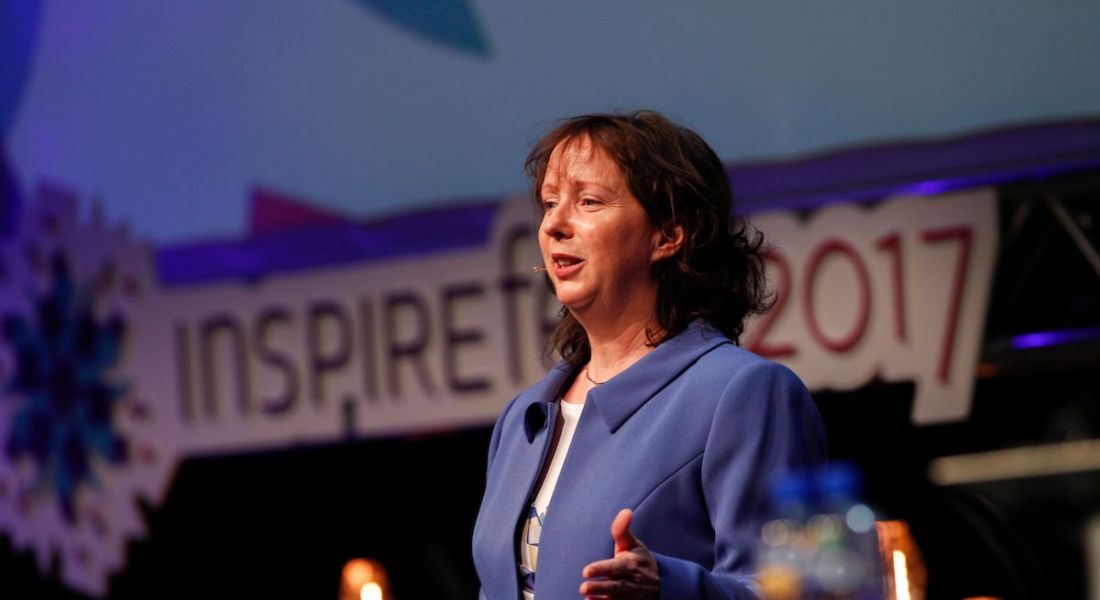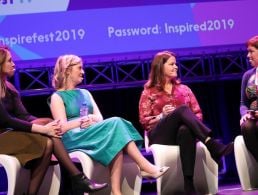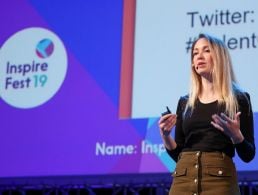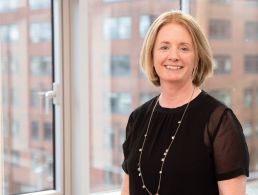More women in engineering will boost diversity and career security, says Inspirefest speaker and engineer Prof Lisa Looney from Dublin City University. She spoke to Dr Claire O’Connell.
Encouraging more women into engineering will not only improve diversity in the profession, it will also help to ensure that more women are well placed to benefit from new opportunities in technology.
That’s according to engineer Prof Lisa Looney from Dublin City University (DCU), who spoke at Inspirefest during the summer.
As executive dean of the DCU Faculty of Engineering and Computing in DCU, Looney oversees a faculty of graduates at bachelor’s, master’s and PhD level. It runs research projects as part of major centres such as Adapt, the Insight Centre for Data Analytics and, most recently, I-Form, as well as other Irish and international groups.
That, combined with her 25 years’ experience of being involved in engineering education initiatives, gives Looney a vantage point to see trends around engagement. And, when it comes to encouraging young women into the engineering profession, she has seen some recent changes.
“I think, for a long time, we were missing momentum and sustained direction,” she said. “There have been lots of good models, like workshops and transition-year programmes to encourage more girls to become interested in engineering, but they were not mainstreamed.”
Building momentum
The momentum is starting to build though, she noted. “The big change I see in the last year or two is the lead taken by industry. Before, we would have had companies doing things locally, but now we are getting momentum in industry groups; people in companies with responsibilities around diversity are asking how to contribute to school and university initiatives.
“People are talking to one another, harnessing the power of industry – and that’s something very positive.”
Looney has also noticed a change at the ‘grassroots’ level of young female engineering students themselves, who are proactive about encouraging other women into the area.
“Young women who come through in our programme now [in DCU] have a better appreciation of issues around diversity; they have a sense of how students can play a role and are empowered to help other women,” she said.
Widening the welcome
There is still something missing though, according to Looney. “We have good models of engagement, science teacher internships, visits to schools – and I think these are great, but we need to move to the next level,” she said.
“We need to think about the pool from which we are attracting female students now, which is largely women who are very confident in maths and have good science or engineering capital in terms of family background. We need to talk about how you go beyond the type of young woman we are attracting and encourage even more young women, the ones who have lots of ability for engineering but might otherwise go into non-technical areas.”
This is important not only for increasing diversity in engineering, but it may also help more women ‘future-proof’ their skills and careers.
“Almost all the new opportunities are going to be in tech-embedded and tech-enhanced career areas,” said Looney.
“If women are not there, they will miss those opportunities. Having a technical base to their education will place them well to build security in multiple careers and, for many, this will be vital.”
Inspirefest is Silicon Republic’s international event connecting sci-tech professionals passionate about the future of STEM. Super Early Bird Tickets for Inspirefest 2018 are on sale now!
Want stories like this and more direct to your inbox? Sign up for Tech Trends, Silicon Republic’s weekly digest of need-to-know tech news.




